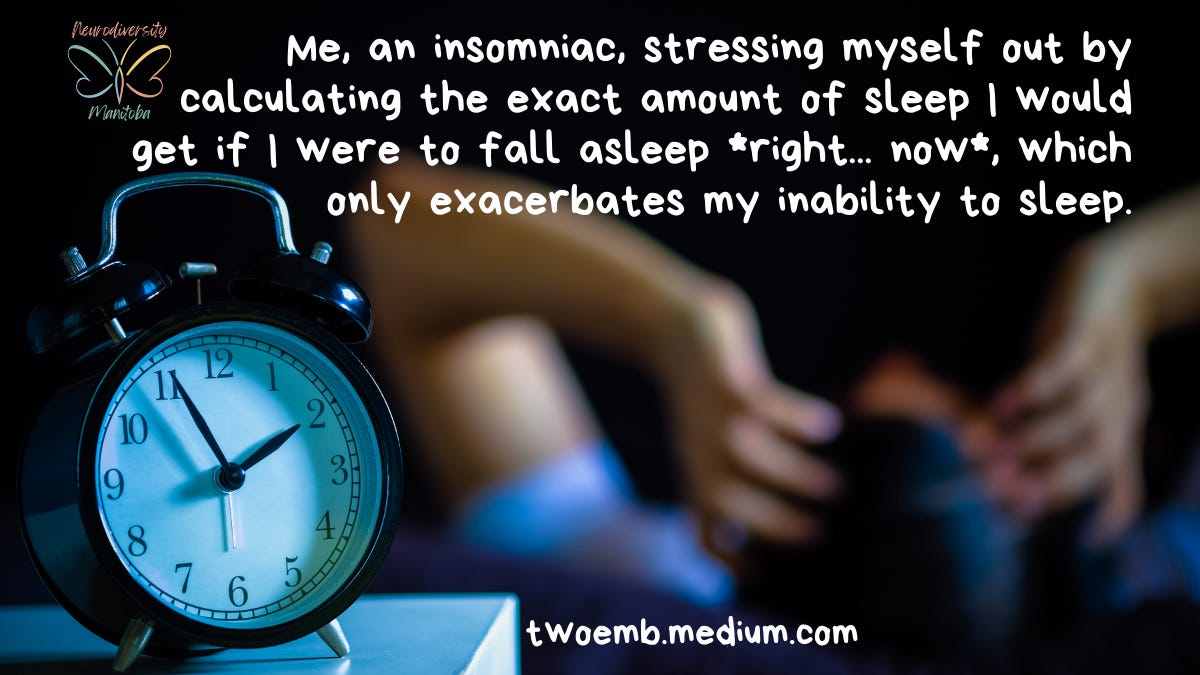
Sleep Awareness
March 14–20, 2022 is Sleep Awareness Week. Sleep disorders are extremely common in neurodivergent individuals, so I want to share specific information related to sleep issues in autism and ADHD. I am fortunate that I usually sleep well nowadays, but this comes after decades of insomnia and sleep issues.
The only reason I sleep well now is that I have a very active job which keeps me outdoors a lot and because I stick to a fairly strict sleeping schedule at least 6 days of the week. If I deviate from this too much, I very quickly regress.
At one point during the pandemic when I wasn’t working, I started staying up a bit later each night. One night I didn’t go to bed until 4 am and then slept until about 11 am the next day.
I knew I had to get back on track immediately, or I would be in for some serious issues. In the past when I had really bad insomnia, it led to severe depression and anxiety, which are common consequences of prolonged sleep loss.
Even short-term sleep deprivation can cause increased reward-seeking behaviors, reduced social skills, and a reduced ability to accurately interpret social cues — things I already struggle with due to being Autistic and having ADHD.
Long-term sleep deprivation can lead to increased mortality, increased accidents and injuries, lower quality of life, decreased family well-being, and poor overall health.
…Yeah. That’ll help with the anxiety.
Sleep Disorders
Not only are sleep disorders common in Autistics and people with ADHD, but sleep disorders are also worsened by sensory modulation issues. Issues with sensory modulation make it difficult for neurodiverse people to tune out or desensitize themselves to unpleasant or overwhelming sensory stimuli.
An interesting study found that 30% of children with ADHD but no sensory processing issues had sleep disorders, whereas 85% of children who had both ADHD and SPD also had disordered sleep.
I couldn’t find any study comparing Autistic people with SPD to Autistics without SPD, but that would be a very small group, considering so many Autistics (as many as 95%) process our senses differently from neurotypicals (NTs).
Interestingly though, neurotypical people with sensory hypersensitivities are also more likely to have sleep issues when compared to NTs without hypersensitivities. Sleep disorders are thought to affect approximately 30% of the general population, whereas at least 80% of Autistics have sleep difficulties.
Insomnia
The most common sleep disorder is insomnia, which makes it hard to fall asleep, hard to stay asleep, or causes people to wake up too early and not be able to get back to sleep.
Insomnia affects approximately 6–15% of the general adult population, but insomnia affects over 44% of adults with ADHD, and anywhere from 50–80% of Autistics.
This isn’t entirely surprising because the reticular activating system (RAS) is implicated in ADHD and autism, a region of the brain that plays a role in regulating our sleep cycles.
Strategies to combat insomnia
Keep reading with a 7-day free trial
Subscribe to Neurodiversity MB to keep reading this post and get 7 days of free access to the full post archives.






